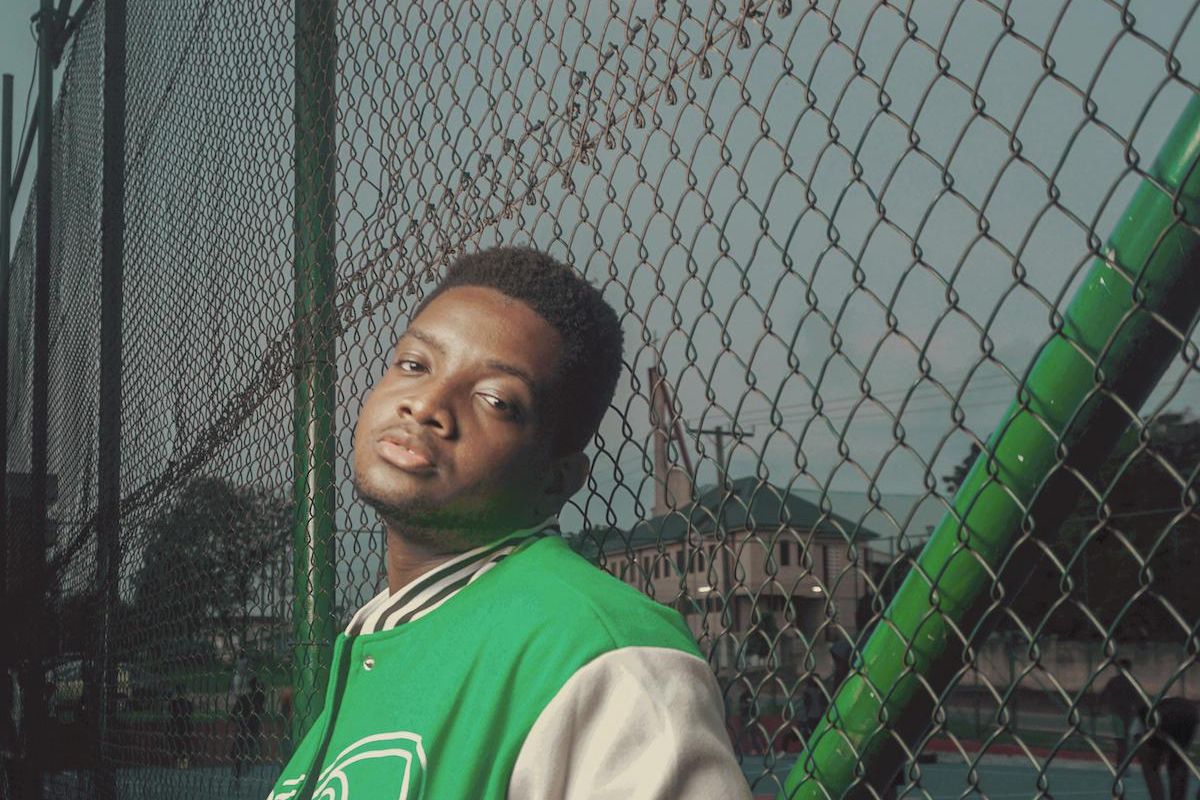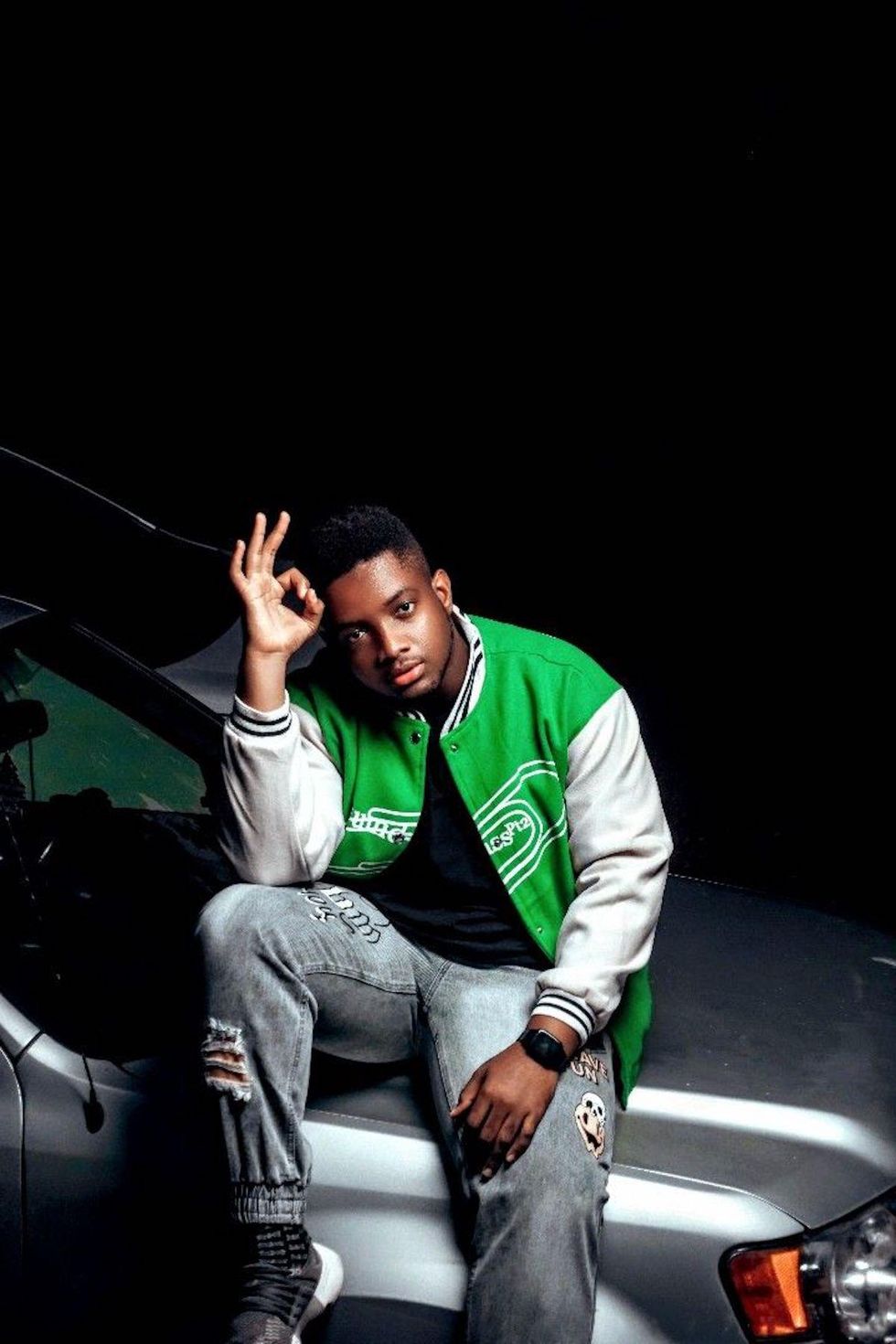BRYAN THE MENSAH On His Debut Album ‘Road to Hastafari’
Written by ABR on 20/01/2022

BRYAN THE MENSAH is one of the new school acts from Ghana who’s been doing it for a minute. Ever since the arrival of his debut EP in 2017, he was quickly recognized as one of the rising acts in the Ghanaian music scene with a fresh and unique sound—a contemporary rap act but one who fluidly moves between rap, pop, alternative, and fusions of the three, and does so effortlessly.
From then until now he’s released four projects in total, all EPs including his critically acclaimed debut Friends with the Sun. His most recentwas 2020’s Not Going Outside, which saw the rapper employ the coronavirus pandemic as its underlying theme. Now, the rapper has decided to level up with the release of his debut album Road to Hastafari.
Bryan actually announced as early as five years ago in that he would be releasing his debut project in 2021, and just before the year came to an end he made good on that promise with an earnest, spirited offering.
As far as full-length projects from contemporary Ghanaian artists come, Road to Hastafari is in a class of its own. Twelve tracks long, with features by M.anifest, buzzing Ghanaian newcomer Black Sherif, Nigerian rappers A-Q and PsychoYP, and rising singer Titi Owusu, RTH is not the conventional African sound. Here, the self-assured rapper with a precise, melodic flow makes it clear that he’s not like anyone else, and he’s not trying to be.
But the album isn’t built on just sonics alone. Road to Hastafari is an album full of personal stories from the rapper that speaks to his journey so far, from family to his love life, and even tales of disrespect that he’s encountered in the music industry. And who better to tell those stories than the rapper himself? We invited BRYAN THE MENSAH to speak to us about his debut album, and the stories behind its creation.
Check out our conversation below.

Photo courtesy of the artist.
So, Road to Hastafari. Where does the title of the album come from?
Hastafari is actually an imaginary word. Hastafari is supposed to represent like a happy place, and Road to Hastafari basically is just telling the story of how over the years, I’ve had to kind of like figure out my own path, my own direction when it comes to my music and which way I want it to take and how I want people to kind of accept my sound, my idea, my concept as an artist. So it’s like right now I’ve found the Hastafari, but I’m not there yet. So I’m on the Road to Hastafari.
Five years ago, you announced that you’d be dropping your debut album in five years time. How did you know that you’d be ready by this time?
I think when it comes to whether I’d be ready or not it was pretty much a gamble. Because the only reason at the time I pinned it at 2021 was because that was a year after I’d be done with school. So I just knew I’d at least have time to focus on music completely, because there’d be nothing in the way around that time.
You’re one artist who was been doing things differently in terms of your sound. Usually in this part of the world when you see artists who have a different sound, you always see people go like “oh that music won’t sell here” or “that artist won’t blow up here,” that kind of stuff. Is that a concern for you?
Initially it was. Because over the years I’ve dabbled in different sounds, I’ve experimented a lot in different things that I assumed worked for other people and might work for me, and things that I just personally wanted to experiment around. So with me, it was a concern but I figured out it’s more about how you make people feel than how you sound.
Reflecting on how things have been since you dropped this project, how have things changed for you over time comparing to when you dropped your previous projects?
Right now I feel like there are a lot more people who are welcoming of my sound, there are a lot more people who have come to see that there’s something like this around this part of the world, it’s not strange anymore. I think that’s what’s happening now, I think people are warming up to how different it is.
BRYAN THE MENSAH – Problem No Dey Finish (Official Video)
youtu.be
What’s your favorite song on the album?
Currently it’s “Until I See You,” but before it used to be “Be Like Me.”
Why “Until I See You”?
Well—I enjoyed making all the songs on the album obviously—but I think for “Until I See You” I’ve recently kind of rediscovered the song in a different way. It feels a little bit more mature to me in songwriting and composition, all of that. So I think that’s why I’m gravitating towards that song.
What’s your favorite feature on the album?
My favorite feature on the album would definitely be “Giraffe” with PsychoYP.
Tell us about working with PsychoYP.
PsyschoYP and I had already linked up in the past. So it wasn’t strange requesting to work with him on a song. He talked to people from his team, and he made it happen. I felt like it was pretty easy because I think we have similar influences. Because we listen to a lot of the same artists, and when it comes to the sound that we produce it was pretty seamless you know, merging the two sounds together.
Are there any interesting stories about any of the songs on the album you can tell us?
Definitely “Feeli Feeli,” where I spoke about a lot of the challenges that I had to go through in the past that have kind of been an eye opener for me as a person positioned in the industry in a weird way. On “Feeli Feeli” I talk about a lot of personal things. I talk about family, I talk about relationships, I talk about my personal experiences here and there within the music industry. I talk about the fact that there were shows that I was billed to perform on, and DJs were cutting my sound and all of that. I felt like I needed to say all of that to give people a proper perspective on where I was coming from on the whole emotion and the whole journey concept.
What do you want people’s takeaway from Road to Hastafari to be?
I want people to come and understand that there is a lot of diversity in this part of the world, and it’s not just the usual afrobeats. No disrespect and no discredit to afrobeats, afrobeats is a great genre. There are great afrobeats songs that I personally like, but I think if people are more welcoming to the diversity that actually does exist, and gives these artists the diversity and the support and attention that they might need to at least be encouraged to continue making that kind of music, we would have very different success stories all across this part of the world for various reasons and not just every day hearing the same story from the same source or from the same people or the same places.



 ABR Group
ABR Group